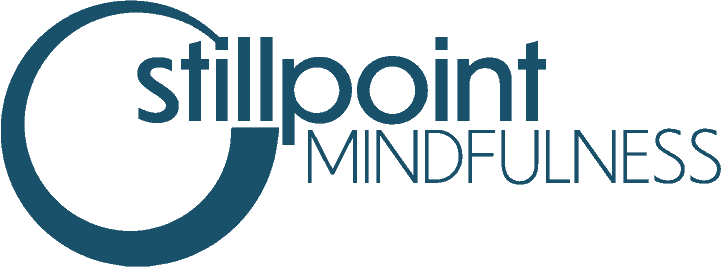For the past few years, a harbinger of spring at our house has been a troubling thump-thump-thump at the living room window. A red-breasted Robin—the same one each year?—flies the not more than 2 feet from its branch on the lilac bush directly into the window. Because the distance is short, it’s a bump, not a crash, and the robin appears unhurt. Yet it persists, despite the consistent feedback the pane gives, pursuing whatever image it sees reflected in the glass. A twig to build its nest? The inviting blue of the open sky? We paste colored paper to the window, streamers, hoping to flag the illusion that’s reflected on its surface. Though these deterrents help for a time, eventually the thumping begins again.
I can’t help but see myself in the bird’s repetitive flight. I, too, can bang repeatedly against the glass pane of mood and mind patterns that block me from what I most long for—relief, peace of mind, a sense of intimate connection with myself and others. This tendency is so human—when we meet with difficulty, loss, uncertainly, and pain, our mood can drop, and then thoughts jump in to “solve” it , to “figure it out”—why am I so anxious? depressed? what’s wrong with me? Though this habit of mind is rarely effective, we keep at it, like the bird against the window, and our inability to think our way out of our distress ends up amplifying the sense that something is seriously wrong.
Yet, as research in cognitive neuroscience is demonstrating, the way forward is as close and available to us as the open sky is to the robin. We already have what’s required for disentangling ourselves from the patterns of mood and thought that perpetuate our distress. Part of our human repertoire, already here but often requiring cultivation on purpose, is our capacity to notice and shift out of analytical thinking and into our embodied experience. We can intentionally turn toward and befriend our present-moment, sensory experience of being alive.
Mindfulness-Based Cognitive Therapy (MBCT) is an 8-week, evidence-based approach that focuses in on these patterns of mood and mind that keep us stuck, bumping up against the windows that we mis-take for blue sky. It offers intensive training in mindfulness practices as well as elements of cognitive therapy, and has been shown in over 20 years of extensive research to help reduce both symptoms and the rate of relapse of depression, as well as to reduce anxiety and stress. The National Institute for Clinical Excellence (NICE) in the United Kingdom has recommended MBCT as a front-line therapeutic approach for depression and anxiety in its nationalized health care system. Based on the strong evidence that has shown MBCT to be as effective in reducing symptoms of depression as antidepressant medication, it is now being offered more broadly in the U.S.
This mindfulness-based course is a powerful way of untangling knots of habits that simply don’t serve us, and of learning new options for relating creatively and kindly to the challenges and difficulties that arise in our daily lives. Unlike the robin, we can choose to see the window for the illusion of sky that it is, and turn, on purpose, in the direction of the open air. For more information on Stillpoint’s summer MBCT course please visit the course page HERE.


Recent Comments